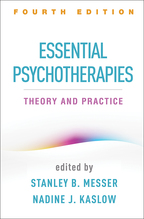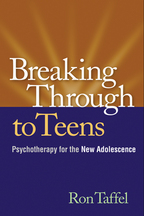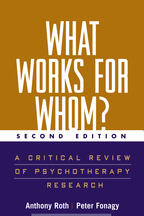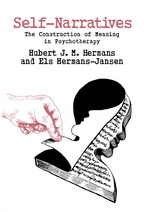Change Processes in Child Psychotherapy
Revitalizing Treatment and Research
Stephen R. Shirk and Robert L. Russell
Hardcover
Hardcover
orderAugust 2, 1996
ISBN 9781572300958
Price: $75.00 395 Pages
Size: 6" x 9"
“Shirk and Russell provide a much needed addition to the too often neglected interface between clinical practice and empirical research. These authors eloquently argue that child clinicians and researchers in clinical and developmental psychology must share their respective expertise if child psychotherapy is to continue to evolve and survive as a viable form of treatment. Change Processes in Child Psychotherapy does much to bridge the schism between research and practice and holds considerable promise for facilitating dialogue and the cross fertilization of ideas between those providing treatment and those invested in understanding developmental child psychopathology. This volume will be an important addition to striving to ameliorate the suffering of troubled children.”

—Dante Cicchetti, Ph.D.
“The contributions of this volume are manifold. First, it includes an unparalleled, comprehensive review of the status of psychotherapy research with children. At the same time, while it presents a critical and sobering overview of research on child psychotherapy, it maintains a wide and optimistic perspective of the literature. The balanced, comprehensive review alone should establish this as a standard reference for the field, but it goes further. It also offers a novel, integrative way of conceptualizing child and adolescent psychotherapy. This view is clearly integrationist in breadth and empirical in foundation. The authors argue for disbanding traditional brand name labels and diagnostic distinctions as the basis for assessing treatment efficacy, in favor of an approach that develops treatment-relevant case conceptualizations from an analysis of the child's emotional, interpersonal, and cognitive development. Thus, they integrate developmental literature, research on psychopathology, and psychotherapy concepts into a process that addresses those common and distinctive aspects of children's behaviors that differentially enhance and retard psychotherapeutic processes. “This volume represents a needed approach in child and adolescent psychotherapy, and offers revitalization to a field that suffers from the lack of empirical findings that are so necessary for advancement. This is a well-researched volume that is comprehensive in scope, integrative in view, and optimistic in perspective. Thank you for the opportunity of getting an advanced look at this volume.”

—Larry E. Beutler, Ph.D., Professor, Director, Counseling/Clinical/School Psychology Program
—Dante Cicchetti, Ph.D.
“The contributions of this volume are manifold. First, it includes an unparalleled, comprehensive review of the status of psychotherapy research with children. At the same time, while it presents a critical and sobering overview of research on child psychotherapy, it maintains a wide and optimistic perspective of the literature. The balanced, comprehensive review alone should establish this as a standard reference for the field, but it goes further. It also offers a novel, integrative way of conceptualizing child and adolescent psychotherapy. This view is clearly integrationist in breadth and empirical in foundation. The authors argue for disbanding traditional brand name labels and diagnostic distinctions as the basis for assessing treatment efficacy, in favor of an approach that develops treatment-relevant case conceptualizations from an analysis of the child's emotional, interpersonal, and cognitive development. Thus, they integrate developmental literature, research on psychopathology, and psychotherapy concepts into a process that addresses those common and distinctive aspects of children's behaviors that differentially enhance and retard psychotherapeutic processes. “This volume represents a needed approach in child and adolescent psychotherapy, and offers revitalization to a field that suffers from the lack of empirical findings that are so necessary for advancement. This is a well-researched volume that is comprehensive in scope, integrative in view, and optimistic in perspective. Thank you for the opportunity of getting an advanced look at this volume.”
—Larry E. Beutler, Ph.D., Professor, Director, Counseling/Clinical/School Psychology Program








